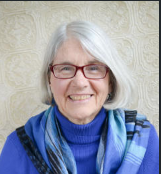
Next chapter questions at any age are potent, and they deserve attention. And, looking back helps you look forward. Here’s an overview of how I am thinking:
Chapter One might be the years 1 – 25 as one is moving through childhood, adolescence and into adulthood. Hopefully those early years were a time of being loved and cherished. If not, reflection is definitely required. Then comes Chapter Two from 25 – 50 when one gives primary attention to addressing the issues of career/work, home, partner and family.
In the early stages, the questions tend to be more practical:
– What are the elements of a good life for me?
– What do I really like to do; how can I turn that into my profession?
– What kind of education do I need and want and can afford?
Back in my own younger days (the 1960s), the questions were simpler, but the boundaries for women and people of color were limiting. Now 50 years later, while those boundaries have not disappeared, they have softened. And, we face newer issues: a higher cost of living, residues of racism, challenges to our democracy, and rapid changes in the work place brought by technology and AI.
In addition, by the time one arrives at 50 or 60, both “career” and “retirement” may have moved to the back burner. Why is that? Duh…we discover that we still have 30 more years to live.
Whoops! This unanticipated “gift of longevity” could constitute a Chapter Three from 50 – 75 or thereabouts. Here’s when many develop second careers and seek different ways to maintain health, enjoy life, find purpose, and contribute to their communities.
My own third chapter, starting at 58, mostly included grappling with multiple sclerosis which required leaving behind the business I had founded and loved for 20 years. Life was definitely changing… completely. So many basic issues emerged: Financial, health, retirement, downsizing, non-retirement, purpose, meaning, usefulness, divorce, and the death of my parents. I needed to build a different life from the one I had hoped for.
My questions had shifted:
-How do I navigate the gazillion transitions and health issues occurring in my life?
-What are my unacknowledged gifts and how can I, disabled, explore them in a variety of ways?
-How can I be useful and productive in this new life I must build?
As I reviewed the activities of my own 18-year third chapter transitioning to I knew not where, I had hosted several class reunions, fit in some long desired trips, dug deep into alternative healing trials, and wrote and published three books. I sold my home, downsized and committed to senior living at Providence Place. And I was having fun sharing my books in different venues. Life was beginning anew.
Then I entered what I am calling Chapter Four. Precisely at age 74, coinciding with the unexpected death of my younger brother, I realized:. “I, too, am going to die!” From then on, I started living forward through my “remaining days.” Although these days were full, fun and active, the diminishments kept arriving.
I need hearing aids and a walker. I drive with hand controls. I have lost my sense of taste and smell and have slight difficulty with memory of names and events. I have an annual appointment with a geriatrician who keeps me on track. So far, so good.
The post-75 years don’t yet have an agreed upon name among the sociologists or academics. For me, they represent another stage of adult development, a kind of deeper aging, and along with growth, wisdom and an opportunity for conscious eldering. Author Connie Zweig describes this work as “shifting from role to soul”,
The questions changed again:
– What are my current challenges, as I attempt to remain happy/healthy as I approach my “end?
–What is it that I need to talk about with myself, siblings and allies in order to face those challenges?
– What is the legacy I want to leave in terms of who I am and what lessons I’ve learned?
Now 85, I am aware that one day I will no longer grace the planet with my presence. I’m beginning to encounter (hopefully consciously) the life challenges, lessons, and regrets which need attention. I’m aware of increased vulnerability, a softening of my lifelong need to be independent, daring to ask for help, and allowing my feelings to reach the surface.
Who knows what will be next? For me, I’m looking ahead to a “fifth chapter” of active and enlightened at home dying. As the younger and larger Boomer Generation approaches 80, I am noticing the increasing number of organizations that support aging adults to find answers to their questions. These reflections and conversations are difficult AND necessary.
All of the many questions associated with the journey towards end-of-life take time and certainly more than one chat. Conversation groups are key. I notice the increasing proliferation of bookclubs on Zoom, in libraries and senior centers, all being formed to discuss whatever is challenging us we near the end of our lives. And, as there is no one path for everyone, we create and reflect on our own unique paths by engaging with others, everyone teaching and everyone learning.
Just remember: Part of your legacy will be your own unique path through your however many chapters of life. Do figure out a way to share it.